Special masters: what they are and how they impact court cases
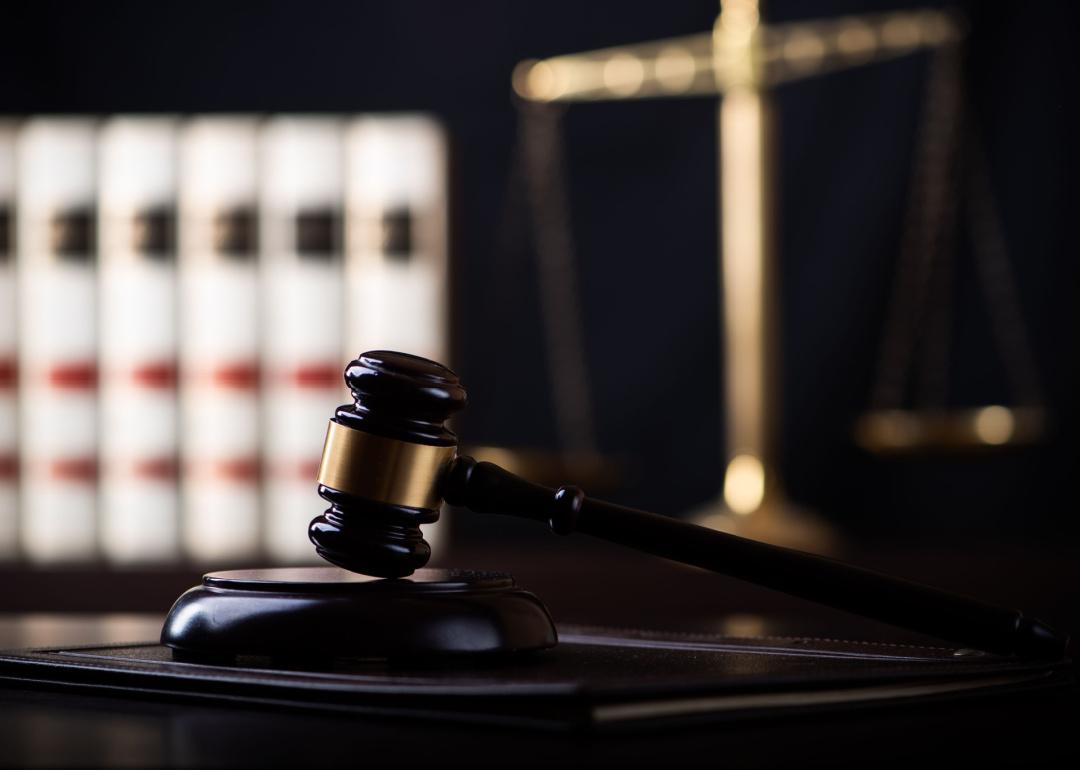
Fabio Balbi // Shutterstock
Special masters: what they are and how they impact court cases
Gavel and law books with scales of justice
Even for the most informed political enthusiast, some litigation is just difficult to follow. Court proceedings become complicated quickly, and sometimes even those involved need an extra set of hands to help move the case along.
Enter special masters. These court-appointed employees step in when typical court staffing falls short. Such is the case for one of the judicial proceedings making headlines at the moment: the investigation by the FBI into documents seized at former President Donald Trump’s Mar-a-Lago residence. With more than 11,000 documents, Trump’s legal team requested a special master to help review and sort the evidence.
But to almost anyone without a Juris Doctor, the term “special master” may as well come from a foreign language. To help make sense of the legalese permeating the news, Stacker investigated what special masters are and how they impact court cases using a variety of news, government, and other sources.
You may also like: How the gender wage gap has changed over the last 40 years
![]()

UnderhilStudio // Shutterstock
What is a special master?
Close up of person reviewing documents
A “special master” is a person appointed by a court to carry out a specific task or set of tasks for that court. These tasks may include pre- or post-trial duties, compiling reports on evidence, or even liaising between the two parties involved.
Before the establishment of special masters in Rule 53 of the Federal Rules of Civil Procedure, “masters” were also court-appointed staff specifically chosen to compile evidence and documents to inform the court’s action. Though many special masters complete similar tasks to masters, the use of special masters has nearly eclipsed the appointment of traditional masters in practice.
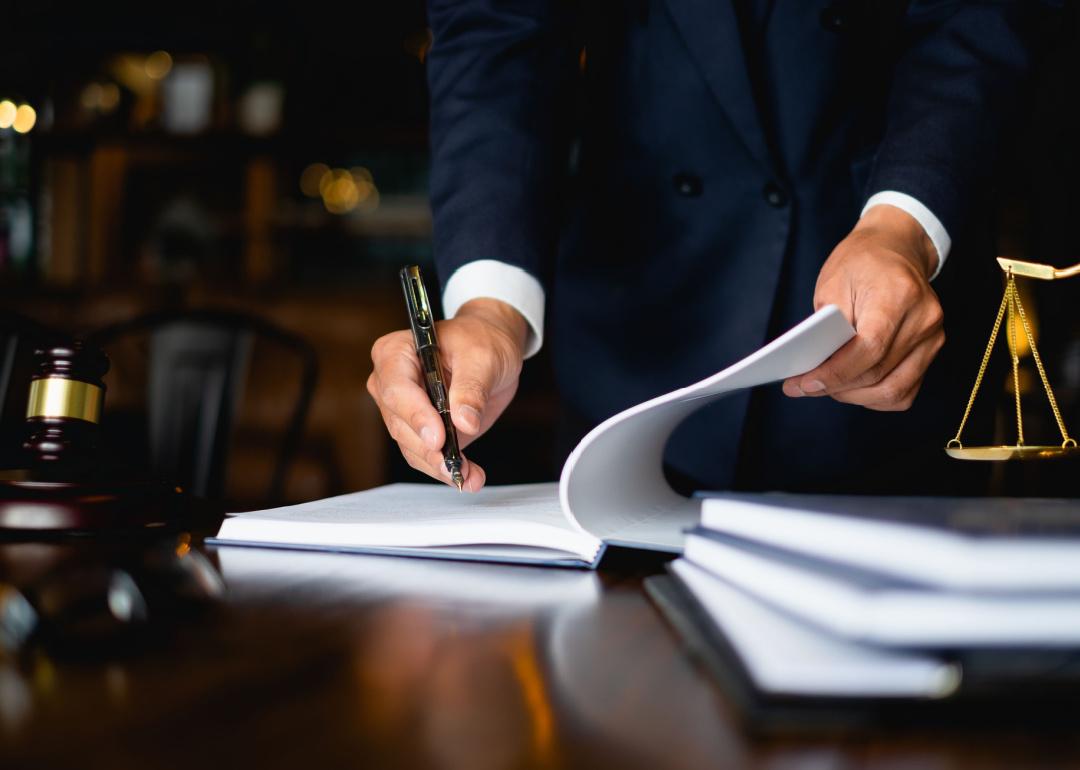
Worawee Meepian // Shutterstock
Who decides to appoint a special master to a case?
Attorney standing at desk writing in document
Though any party involved in a court case can request a special master, the decision to appoint one is ultimately up to the court itself, according to the American Bar Association. In addition, either party in a case can suggest who to appoint as the special master; however, the final decision rests with the court.
You may also like: Biggest source of tax revenue in every state

JARIRIYAWAT // Shutterstock
How is a special master chosen?
Person sorting through stacks of documents
The American Bar Association’s guidelines state that the court must “ensure that qualified and appropriately skilled and experienced candidates are identified and chosen.” There are no further requirements regarding educational attainment (such as a law degree) or experience. However, Rule 53 does include a clause forbidding the appointed special master to have any relationship with others involved in or working on the case.
Despite the lack of legal requirements for familiarity with the law, the Department of Justice does cite a JD as a required qualification for their special masters’ job postings. The court makes the final determination of who will fill the role of a special master when required.
You may also like: Biggest source of tax revenue in every state
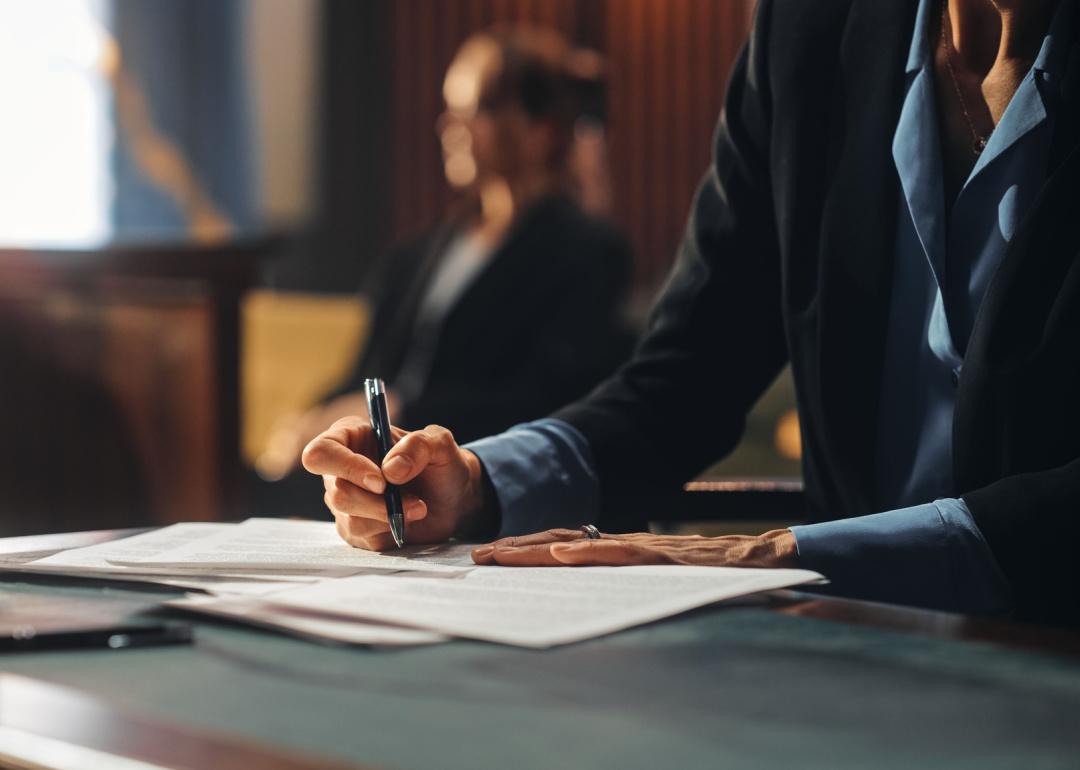
Gorodenkoff // Shutterstock
How common are special masters?
Close up on attorney’s hands writing in courtroom
Typically, special masters are the exception, not the rule. A 2000 Federal Judicial Center report found that special masters were exceptionally rare at the state level. When utilized, they were often internally appointed so that someone already involved in that state’s legal system could help with the case. Internal candidates are already on the system’s payroll, so they do not incur an additional charge on either the government or the parties involved.
You may also like: Biggest source of tax revenue in every state
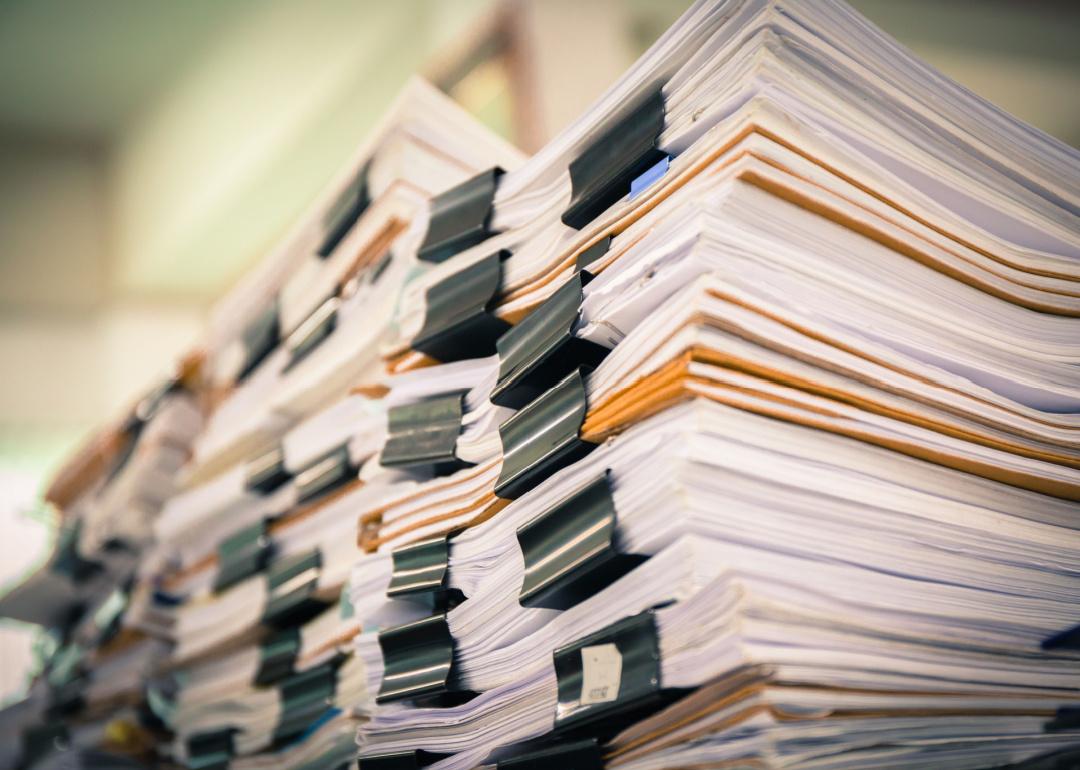
Nuk2013 // Shutterstock
Does a special master impact the outcome of a court case?
Stacks of documents organized with binder clips
No, the appointment of a special master does not inherently change the outcome of a court case. The only inherent change to a court case that a special master may cause is potentially increasing the length of the court proceedings, as the appointment process takes time and special masters often report on their findings during the court hearings.
Special masters are sometimes called upon to make decisions during the court proceedings, according to special master David Cohen, who works on federal cases concerning opioid litigation. In such a case, the findings of the special master are taken into consideration by the presiding judge and jury, if present.
You may also like: Biggest source of tax revenue in every state

alexskopje // Shutterstock
What is the purpose of the special master in the Mar-a-Lago documents case?
Top secret document market “Classified” with pen and glasses
Former New York Chief Federal Judge Raymond J. Dearie has been appointed as a special master for the Mar-a-Lago case. Specifically, Dearie’s task is to examine about 100 documents from the case considered classified information. However, there was previously some debate about whether Dearie should also sift through the more than 11,000 nonclassified documents associated with the case.
Once Dearie has sufficiently examined the documents, he will provide a ruling about whether or not any of the documents should be withheld from criminal investigators due to either attorney-client or executive privileges held by Trump.
You may also like: Biggest source of tax revenue in every state
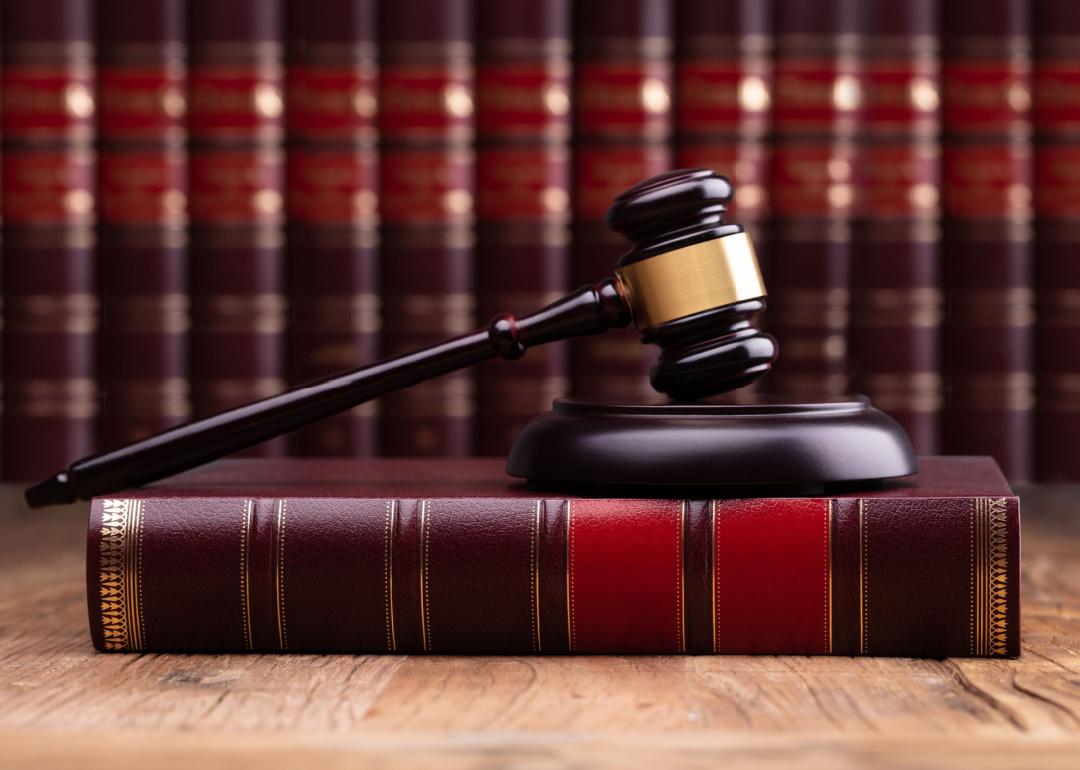
Andrey_Popov // Shutterstock
What other cases have appointed special masters?
Judge’s gavel on legal books
Special masters are not confined to certain types of cases; however, they are most often appointed for particularly complicated cases or ones with a large volume of case material associated with it, as is the case with the Mar-a-Lago proceedings.
Other cases that have involved special masters include complex antitrust cases like La Buy v. Howes Leather in 1957, a suite of opioid litigation cases in Cleveland in 2018, and immigration litigation cases like Ayuda, Inc. v. Meese in 1988—though this is far from an exhaustive list.
You may also like: Biggest source of tax revenue in every state






